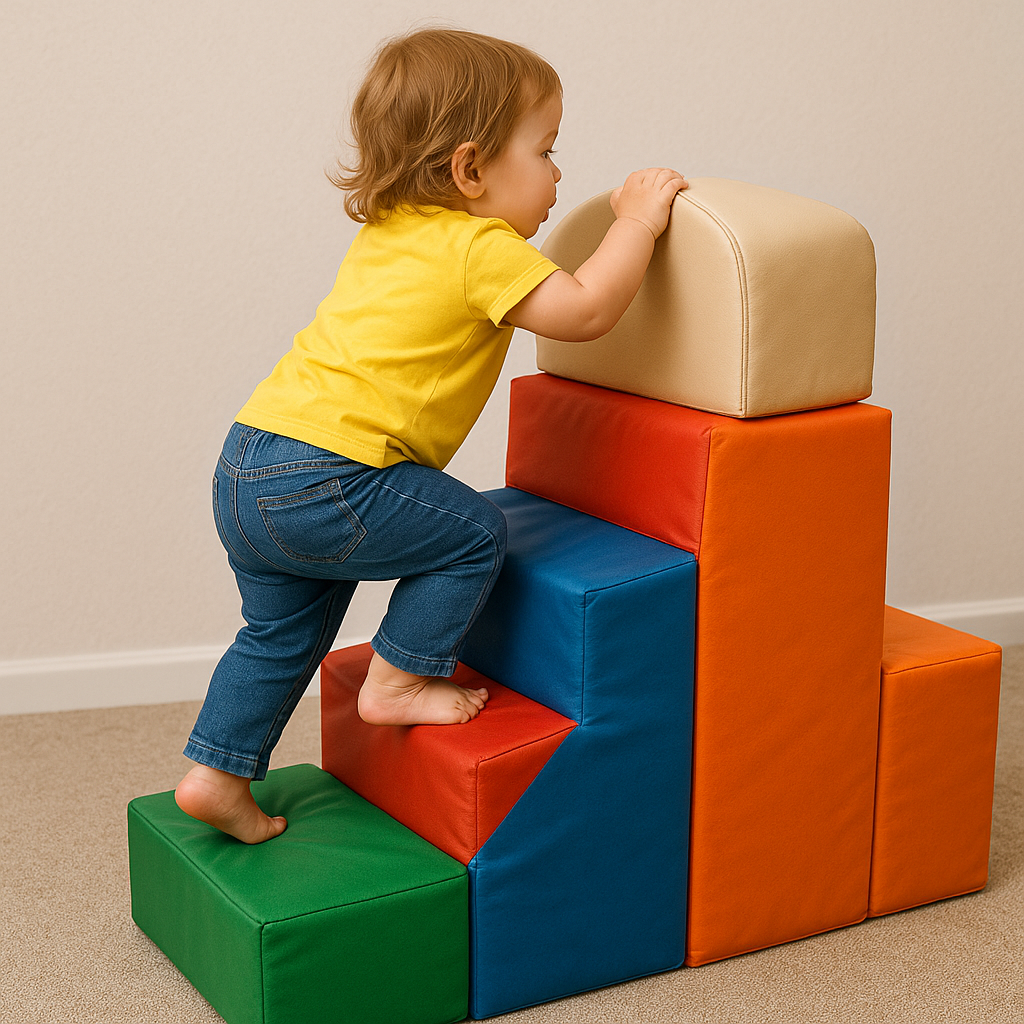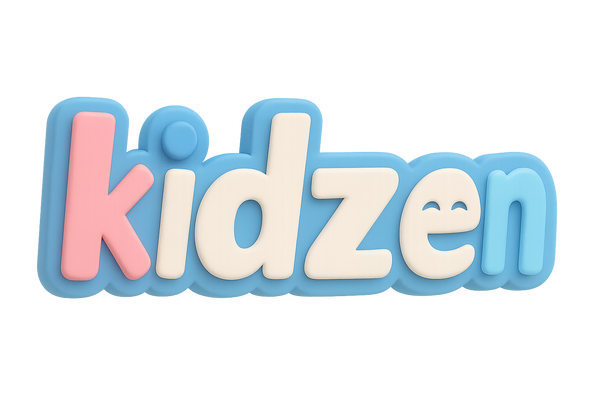
Why Climbing Blocks Are a Smart Choice for Kids’ Development
Share
Introducing soft climbing blocks into your child’s play routine isn’t just fun—it comes backed by solid research demonstrating benefits across physical, cognitive, and emotional development.
1. Enhances Gross and Fine Motor Skills
Climbing requires using large muscle groups, improving gross motor skills like balance, coordination, strength, and agility tts-group.co.uk+15thegeniusofplay.org+15en.wikipedia.org+15mvpplaygrounds.comthegeniusofplay.org+4poppyseedplay.com+4parents.com+4. When kids reach, grip, and crawl over blocks, they also refine fine motor control, gripping edges and surfaces—literature shows block play boosts fine motor ability significantly (from ~11.8 % to ~70.6 % normal development) researchgate.net.
2. Builds Strength, Coordination, and Body Awareness
Climbing engages arms, legs, core, and back in concert, encouraging reciprocal movement essential to balance and body awareness en.wikipedia.org+11treefrogplay.com+11playplanetkids.com+11. Reliability on multiple muscle groups fosters physical literacy—the ability to move confidently in varied environments en.wikipedia.org.
3. Boosts Cognitive and Problem‑Solving Skills
Navigating a climbing layout is like solving a physical puzzle. Kids learn to plan steps and remember positions, honing working memory, spatial reasoning, and sequencing skills—key cognitive abilities walmart.com+15miracle-recreation.com+15hss.edu+15.
4. Fosters Confidence and Healthy Risk‑Taking
Climbing involves manageable risks. Mastering a block formation builds self-esteem and resilience as children learn to overcome challenges independently treefrogplay.com+3verywellfamily.com+3naeyc.org+3. This confidence transfers to broader social and emotional growth.
5. Encourages Creative, Open‑Ended Play
Unlike fixed structures, soft climbing blocks are modular—encouraging kids to invent new configurations. This promotes imaginative play, cognitive flexibility, and extended engagement tts-group.co.uk+5naeyc.org+5verywellfamily.com+5mvpplaygrounds.com+1walmart.com+1.
6. Supports Academic Learning Through Movement
Physical movement isn’t just play—it stimulates brain function. Movement-based learning boosts attention and information retention, making climbing an educational booster even outside the playroom .
Tips for Safe, Effective Block Play
-
Choose age-appropriate, high-quality blocks. Soft, non-toxic, durable materials are ideal.
-
Start simple. Begin with low configurations and gradually increase difficulty as skills improve.
-
Supervise and join in. Your involvement enhances safety, bonding, and learning through guided play.
-
Conclude with reflection. Ask open-ended questions like “How did you plan your climb?” to reinforce cognitive insights.
Research at a Glance
| Benefit Area | Supporting Source |
|---|---|
| Motor skill gains (gross & fine) | playlsi.com+15walmart.com+15walmart.com+15naeyc.org+1miracle-recreation.com+1treefrogplay.com+9poppyseedplay.com+9miracle-recreation.com+9tts-group.co.uk+4researchgate.net+4parents.com+4 |
| Strength & coordination | |
| Problem-solving enhancement | |
| Confidence & risk-taking | |
| Cognitive engagement via movement |
In Summary
Soft climbing blocks offer a trifecta of benefits: they strengthen bodies, exercise minds, and boost confidence—all while kids think they’re just playing. As modular tools that evolve with your child, they make an exceptional addition to any learning environment, indoors or out.
